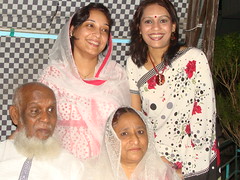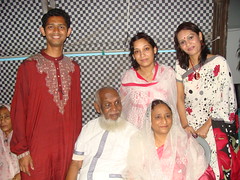Make WiMax accessible
Qubee CEO Jerry Mobs shares his experience
Nafid Imran Ahmed
Qubee, the first WiMax service provider in the country, is in operations for nine months now, and it is already making noise in the market.
Recently Jerry Mobs, the company’s chief executive, spoke to The Daily Star and shared his experiences.
According to Jerry, one of the main issues that affect the whole industry is the extremely high price of the International Internet Gateway (IIG) connectivity, which is about two and a half times regional averages, such as Pakistan, India and Sri Lanka.
“If you compare Bangladesh to those nations, you will find that it’s very expensive. And that cost is bourne not only by Qubee, but also by others, such as Banglalion, GP and all other ISP’s in the market. This is preventing the growth of services in Bangladesh.”
“You may be able to get the customer but to connect them to the rest of the world, that’s when it gets really expensive and 98 percent of my traffic goes out of the country — that has to go through the international gateway.”
The price for 1Mbps in equivalent South Asian countries is around about $70 — it is currently Tk 18,000 for the same in Bangladesh, he said.
That is the price all the internet service providers (ISP) pay, not just Qubee, which is the single biggest cost element in retarding their growth, the CEO said.
Jerry mentioned that they brought up the topic with Bangladesh Telecommunication Regulatory Commission (BTRC) and they responded positively. BTRC knows the issues and will have to look at all the stakeholders, as there are government revenues involved, he added.
“I have a feeling they understand the situation and are looking to achieve a sensible way forward that benefits all parties. It has to be a win-win deal. I have faith in the regulator that they will do a good job and everyone will be happy.”
Jerry believes the market potential is huge and growing all the time. “Cellular operators have almost 5 million people using the internet on the small screen and there are half a million to three quarters of a million connected at home. We are still looking to cover that market.”
“We’ve gone through our launch phase. Now we cover most main areas of Dhaka. We’ve got 8,500 subscribers on our network today and we are the fastest growing ISP, in terms of bandwidth — we know that talking to Mango TeleServices and BTCL and probably number two or three in terms of single largest bandwidth customer,” he informed.
Since inception, Qubee learnt a lot about the market and optimised a lot of the network; and they have about 50 base transceiver stations (BTS) today. By mid June, they plan to increase that number to 120 throughout Dhaka.
“We have a couple of new projects coming up in June-July. There is a lot of work going on, primarily based around mobile devices, allowing people to move around the network and access a WiMax 4G network throughout Dhaka,” said Jerry.
On built-in WiMax modem enabled laptops, Jerry said the industry is working on it at the moment. The main focus now is to provide WiMax to as many potential users as possible, whether on a desktop or laptop, the CEO added.
“Our primary objective in the short term is to cover everybody and give them a chance to use high speed reliable internet services. We want to offer the ability to move around with dongle type devices, which is what our network will be able to support in June. I think around Q3 this year, embedded devices, such as bundled laptops with in-built WiMax devices, should start to happen,” he said.
When asked if the company is on target, Jerry said they are a bit behind at the moment. “We are adding about 100 customers a day. Around about 30 percent of those are referrals from people who’ve used our services for a month or two.”
“I think we delivered in general on our brand promise, which is a good internet experience, a service that never sleeps and speed in happiness.”
On existing ISPs with wireless spectrums, he said: “When we invested in Bangladesh, we knew the process was pretty clear and that existing ISPs that already have the rights to use their spectrum, would continue. We don’t see that as a big issue.”
“If people start to pull their spectrum to create larger groups of spectrum, and if they could offer similar services that creates another competitor with a large chunk of spectrum without benefits to the government by not having to pay a licence fee, to me that is wrong and we would object.”
“I don’t think that is going to happen. The regulator here has operated within the rules and the rules of the auction are pretty clear.”
On rolling out 3G, Jerry said he sees it as a complementary service, and doesn’t see his company competing with the cellular operators.
“WiMax is a 4G technology, so having experienced 3G around the world and WiMax, I have seen both sides of the performance. And WiMax is better than 3G.”
3G is a great complementary technology, which will help grow the market and internet penetration, he said. But people still need to have much higher bandwidth for their desktops and laptops, and WiMax can deliver that, he added.
“3G is great for small screens but when you plug it in on a desktop and want to play massive multiplayer online games or upload photographs, WiMax is a better technology.”
23.760407
90.361848




